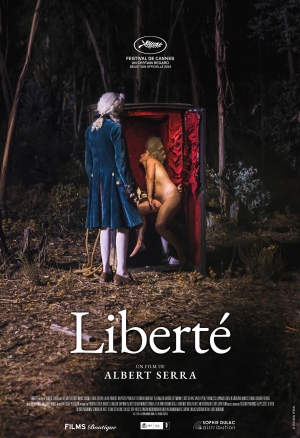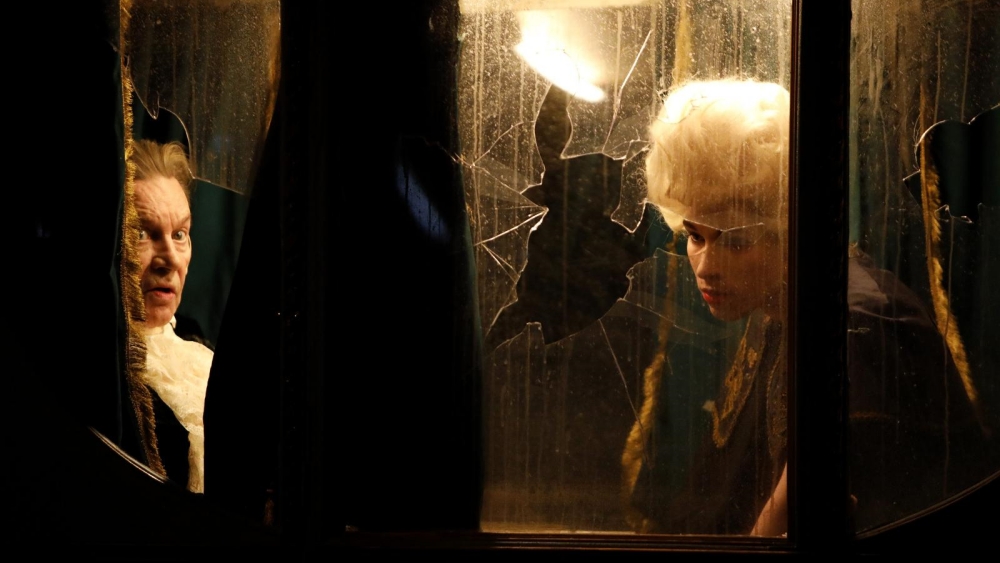If you enjoy slow arthouse cinema that is also extremely perverse, then this new tableau-styled film by Albert Serra about libertinism in 18th century France may be your cup of tea.

Dir. Albert Serra
2019 | France | Drama | 132 mins | 1.85:1 | French, German & Italian
Not rated (exceeds R21 guidelines)
Cast: Helmut Berger, Marc Susini, Iliana Zabeth
Plot: 1774, a few years before the French Revolution, libertines expelled from the Puritan court of Louis XVI, sought the support of the legendary Duke of Walchen, a seducer and free thinker from Germany, alone in a country where hypocrisy and false virtue reigned.
Awards: Won Un Certain Regard – Special Jury Prize & Nom. for Queer Palm (Cannes)
International Sales: Films Boutique
Accessibility Index
Subject Matter: Very Mature/Disturbing
Narrative Style: Abstract/Elliptical
Pace: Very Slow
Audience Type: Niche Arthouse
Viewed: Screener
Spoilers: No
The Cannes jury must have seen something meaningful about this film when it was awarded the Un Certain Regard Award – Special Jury Prize. In some way, if you think about it, Liberte is refreshing to behold, such is its radical filmmaking style, disregard for the audience, and perverse vision.
It operates in its own little bubble, and writer-director Albert Serra (of 2016’s The Death of Louis XIV) appears to be perfectly comfortable in letting his mise-en-scene do the talking.
Shot in a series of static tableaus that are arguably more languidly-paced than the slowest Tsai Ming-liang film, Liberte could very well be called ‘Nocturnal Animals’ and it would have made sense.
Cicadas (providing a constant ambient sound throughout) aren’t the only ones awake in the cold and damp forest; several men and women are out hoping to practice the moral and sexual decadences that mark their beliefs about libertinism. There is not much dialogue, except deliberate attempts at soliciting perverse acts of sex or fantasizing about torture.
Kudos to the cast who were game to flash their genitals, masturbate on cue, endure sadomasochistic acts and, in one scene, getting urinated upon in full view, all under the glistening moonlight that creates a kind of matte effect, if I may add.
One might ask: what’s the point? It is not even erotic, hence the disregard for the audience. But perhaps that’s the point, that is, to frustrate and provoke, so that we might ultimately feel cinema’s inhibited power to challenge taboos.
Or it might just be Serra’s way of commenting on the world today—our vices, certainly no less dastardly; compulsive desires toward unhinged consumption and the devaluing of the other.
To do all of these via a film about libertinism in 18th century France may feel like a masterstroke, and seemingly—if ironically—ahead of our time. But at this point without retrospect, it is difficult to be sure.
Grade: C
Trailer:












[…] Serra’s work may prove to be challenging. It is, however, a more accessible take than, say, Liberte (2019), Serra’s follow-up, which is difficult to watch because of its contentious subject matter […]
LikeLike
[…] Serra’s work may prove to be challenging. It is, however, a more accessible take than, say, Liberte (2019), Serra’s follow-up, which is difficult to watch because of its contentious subject matter […]
LikeLike
[…] are an acquired taste, from the sublime The Death of Louis XIV (2016) to the excruciatingly opaque Liberte […]
LikeLike